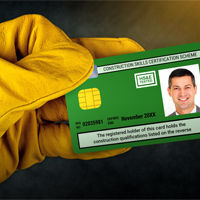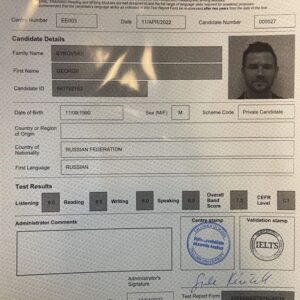Description
Licensed Nurse Certificate
A Licensed Nurse Certificate typically refers to the documentation that proves an individual has met the requirements to practice as a licensed nurse in a particular jurisdiction. This certificate is usually obtained after completing the necessary education, passing the required exams, and meeting other criteria set by the regulatory body in the jurisdiction where the nurse intends to work.
Types of Licensed Nurse Certificates
- Licensed Practical Nurse (LPN) / Licensed Vocational Nurse (LVN):
- In some regions, nurses at this level are known as Licensed Practical Nurses (LPNs) or Licensed Vocational Nurses (LVNs).
- Requires completion of a practical nursing program and passing the NCLEX-PN exam.
- Registered Nurse (RN):
- This is a more advanced level of nursing, requiring completion of an associate or bachelor’s degree in nursing.
- Requires passing the NCLEX-RN exam.
Obtaining a Licensed Nurse Certificate
Steps to Obtain a Licensed Nurse Certificate:
- Complete Nursing Education:
- Enroll in and complete an accredited nursing program. This could be a diploma program, an associate degree, or a bachelor’s degree in nursing.
- Pass the Required Examination:
- For LPNs/LVNs, this means passing the NCLEX-PN.
- For RNs, this means passing the NCLEX-RN.
- Meet State or Country Specific Requirements:
- Each state or country may have additional requirements, such as background checks, clinical hours, and specific coursework.
- Apply for Licensure:
- Submit an application to the nursing regulatory body in your jurisdiction. This usually includes providing proof of education, examination results, and other required documentation.
- Receive Your License:
- Once your application is approved, you will receive your nursing license, which allows you to practice as a nurse in that jurisdiction.
Maintaining Your Nursing License
- Continuing Education:
- Most jurisdictions require nurses to complete continuing education (CE) credits to renew their license.
- License Renewal:
- Nursing licenses typically need to be renewed every few years. The specific renewal period varies by jurisdiction.
- Practice Hours:
- Some jurisdictions require a minimum number of practice hours to maintain licensure.
Benefits of Having a Licensed Nurse Certificate
- Professional Credibility:
- Demonstrates that you have met the standards required to practice nursing.
- Employment Opportunities:
- Qualifies you for a wide range of nursing positions in various healthcare settings.
- Career Advancement:
- Provides the foundation for further education and specialization in the nursing field.
Conclusion
Obtaining a Licensed Nurse Certificate is a multi-step process that involves completing an accredited nursing program, passing a licensure exam (such as the NCLEX-PN for practical nurses or the NCLEX-RN for registered nurses), and meeting additional requirements set by the nursing regulatory body in your jurisdiction. Maintaining the license requires ongoing education and periodic renewal. This certification is essential for practicing as a nurse and opens up numerous career opportunities in the healthcare field.






Reviews
There are no reviews yet.